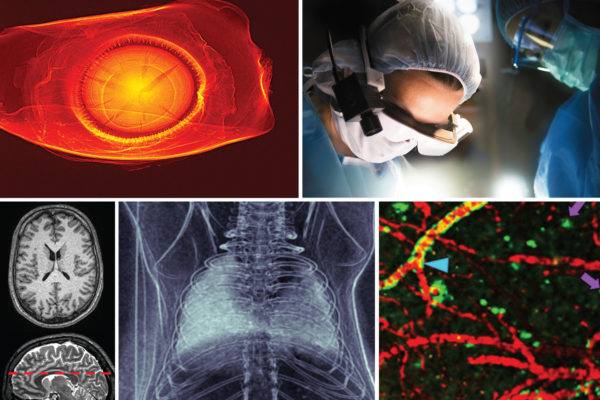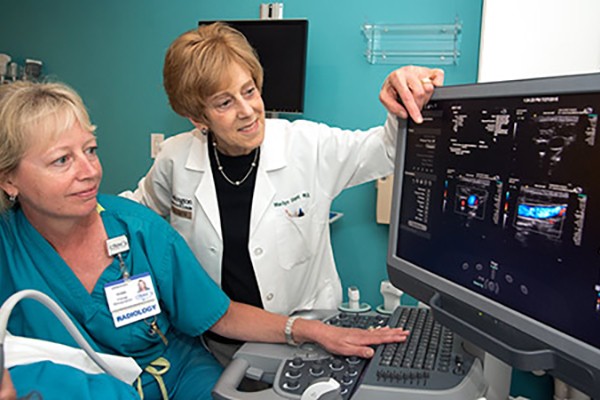Investing $25 million in imaging sciences
Washington University in St. Louis is launching a bold $25 million initiative over the next five years to develop innovative technologies aimed at improving science and medicine worldwide. The Imaging Sciences Initiative – a partnership between the School of Engineering & Applied Science and the School of Medicine – will support the development of new imaging technologies to diagnose and treat disease as well as study intricate biological structures, metabolism and physiology, and critical molecular and cellular processes.
Washington People: Marilyn Siegel
Marilyn Siegel, MD, a professor of radiology and of pediatrics, loves solving the puzzles her field presents and the opportunities it has given her. But most of all, she loves helping patients.
Washington People: Sally Schwarz
The nuclear pharmacist with a flair for design is working to keep Mallinckrodt Institute of Radiology at the forefront of research and patient care.
Three Egyptian mummies receive CT scans
Washington University School of Medicine recently teamed up with the Saint Louis Art Museum and the university’s Mildred Lane Kemper Art Museum to scan some very unusual patients: three Egyptian mummies.
Obituary: Louis Gilula, professor of radiology, 71
Louis Gilula, MD, a faculty member at the School of Medicine for more than 30 years, died July 2, 2014, of pancreatic cancer. Gilula was a pioneer in wrist imaging. Landmarks in the wrist that radiologists use to check for normal alignment are still known as “Gilula’s arcs.”
Siegel receives Cassen Prize
Barry Siegel, MD, professor of radiology at the School of Medicine, was awarded the Benedict Cassen Prize for Research in Nuclear Medicine during the annual meeting of the Society of Nuclear Medicine and Molecular Imaging. The meeting was June 7-11 in St. Louis.
Washington People: Catherine Appleton
Catherine “Kate” Appleton, MD, discusses her work as a breast cancer radiologist and how her patients, family and mentors have influenced her career.
Habif center now offers on-site diagnostic imaging
Through a new partnership between the Habif Health and Wellness Center and the Mallinckrodt Institute of Radiology, students now can have diagnostic X-rays taken right on the South 40. WUSTL has invested in equipment and human resources to make quality medical care even more accessible to nearly 10,000 undergraduate and graduate students.
Online archive to link tumor scans, genetic data
The National Cancer Institute (NCI) has chosen Washington University School of Medicine in St. Louis to create an innovative, Internet-accessible database of millions of cancer images.
CT screening reduces lung-cancer deaths in heavy smokers
In a study of heavy smokers, fewer screened with low-dose CT scans died, compared with similar smokers screened with standard chest X-rays. The National Cancer Institute ran the 33-center National Lung Screening Trial to learn whether more sensitive screening could have an impact on lung-cancer deaths, and Washington University researchers involved in the study say it did.


